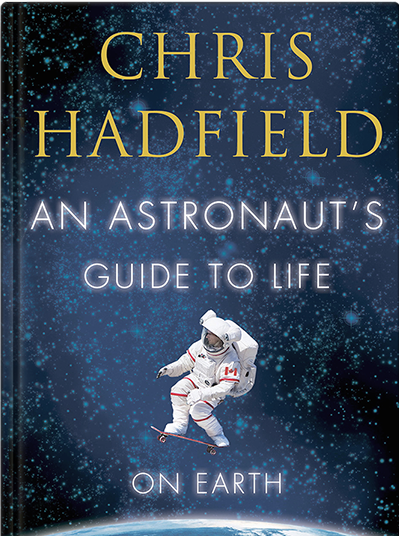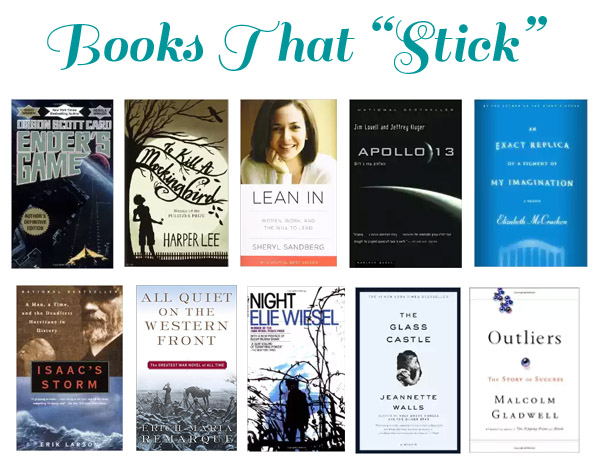A few days ago I finished Chris Hadfield’s book, “An Astronaut’s Guide to Life on Earth,” and ended up writing enough of a Goodreads review that I decided to put my (somewhat more developed) thoughts here as well.
I should start by stating what many of you already know — I work for NASA on the ISS program, and I became a huge Chris Hadfield fan during his increment on the ISS. I think what he did (with massive help from his son Evan and the rest of his family) to increase public awareness of the space station and space exploration in general was utterly fantastic, and I wish everyone we send there could achieve the outreach results that he did. Even now, months after Hadfield returned from the ISS, the current crewmembers still gets asked about him in interviews. While they probably aren’t thrilled to be asked about previous crews instead of their own increment, it does show what a broad impact Hadfield’s social media presence had.
All that said, I had mixed feelings about the overall gist of the book and some of the message it sends.
First of all, it’s structured a little differently from other astronaut memoirs, or memoirs in general. Instead of going in chronological order, Hadfield skips around through different portions of his life as he discusses several lessons he’s learned as an astronaut — things that sounds contrary to what we’ve always been told, like “sweat the small stuff” and “aim to be a zero,” but that make sense when he explains them. (Sweating the small stuff, for instance, keeps it from turning into bad big stuff. Being a zero means that while you might not immediately add value to a team, you’re also not negatively impacting a group’s progress.) Although Hadfield does come across as almost impossibly cheerful, optimistic and happy-go-lucky at times, I liked this approach. And while some might consider these types of life lessons cheesy, I think they’re good reminders.
The second half of the book is more focused, and deals primarily with Hadfield’s stint on the ISS from December 2012-May 2013. I found the bits about his social media presence particularly interesting, since I have a personal and professional interest in communications. I found it a bit incongruous that Hadfield projects a somewhat apathetic attitude about the rock star status he developed, because it seems clear that he intended to court some level of attention. He had significant encouragement and assistance from his son Evan, a marketing specialist — but it couldn’t have happened without his participation and choice to spend his free time onboard recording videos, tweeting, etc.
Now, on one hand I don’t fault him for that AT ALL. Like I said earlier, I think the reach he was able to achieve with his videos, music, photos, etc is awesome. But given the effort that went into his outreach, the “aw shucks” attitude he has in the book seemed somewhat contrived. (Not to mention the fact that this memoir was released only 5 months after his return to Earth — with seemingly obvious intent to capitalize on his momentary fame. Which, again, totally makes sense, don’t get me wrong! Strike while the iron is hot and all that.)
The other thought I kept mulling over in my head is related to becoming an astronaut in the first place, which was a goal of mine in my high school and early college days but fell by the wayside after that. Hadfield makes no bones about the fact that he wanted to be an astronaut since childhood, and I appreciate his honesty. But while he enjoyed all of the things he did along the way and would have been happy doing them as his whole career if the space gig hadn’t come to pass, make no mistake — becoming an astronaut was the single goal that all of his efforts were focused on.
First of all, I couldn’t shake the thought of how rough that must have been on his family. He readily admits his struggle with that dilemma — balancing his professional goals with his personal life, and mentions on multiple occasions that he was often a fairly absentee father and husband — and I appreciated those bits.
But second, I am struck by the longevity of the goal itself. Hadfield is certainly not the first person to realize a childhood dream by becoming an astronaut — I’ve read or heard from enough other astronauts who also dreamed from a young age of flying in space to conclude that this is a fairly pervasive background. But there are two ways to look at this. On the one hand, it’s incredibly admirable that he accomplished his lifelong goal, and the “you can do anything if you put your mind to it” lesson is worthwhile.
But there’s also the subtle implication — at least where becoming an astronaut is concerned — that if you haven’t had that goal since childhood, it’s not possible. And that’s kind of a downer. I readily admit that this bummer of an interpretation probably has a lot less to do with Hadfield or astronauts in general, and a lot more to do with the career-related navel-gazing (see here and here) I’ve been doing lately. Whenever I ponder careers in totally different fields, I always end up bemoaning the fact that I didn’t think about it earlier, “when I was still young” or “when I still had a chance.” (And yes, I know I’m only 35, not 80.) I know this is not at ALL what Hadfield intended to convey, but it’s the train of thought my brain took me on.
After I finished writing this, I googled Hadfield looking for his website and found a book review on the Canadian version of Huff Post. The last paragraph almost perfectly summarizes how I feel about the book:
…In An Astronaut’s Guide, there is a constant tension between the inspiring and the inaccessible, between “get up off your ass and get it done” and “you would never approach things this way, not in a million years.” No matter how folksy or plain-spoken he can seem, Col. Chris Hadfield is not an average guy. He’s an astronaut. He represents the absolute pinnacle of a certain type of single-minded drive, and he has lived his entire life in service of an incredibly specific goal. In the end, he’s (literally) up there, and we’re down here. But we’re listening. And though we may not always be able to follow our own objectives with the clarity and sense of purpose that he does his, there is a lot to be learned from looking up.
So despite my own internal hemming and hawing, this was a worthwhile read. I’ve never met Hadfield personally, but he has always struck me as one of the nicer, more grounded astronauts in the group and this book only confirmed that impression. He retired from the Canadian Space Agency shortly after he got home last year, and I’m curious to know what he will do next! If he’s even half as driven as he appears in his book, I have no doubt he has plans.









